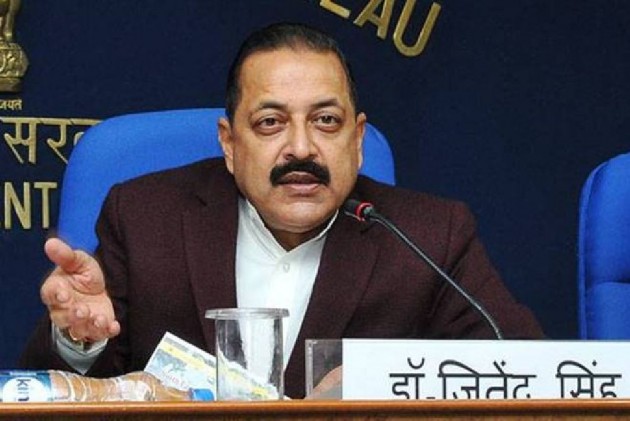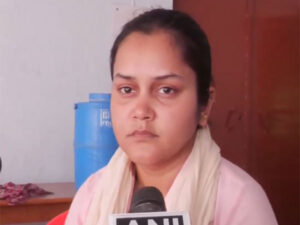Governance reforms by Centre provide enabling environment for working women: Jitendra Singh
New Delhi [India], January 17 (ANI): Union Minister Jitendra Singh on Tuesday said the governance reforms introduced by the central government provide an enabling environment for working women.

Briefing about several measures undertaken by the Union Ministry of Personnel, which is the nodal ministry for personnel management, Singh said, the Department of Personnel and Training has taken concerted efforts to increase the representation of women in central government jobs and to provide them with a balance between professional as well as family life.
The minister cited the example of Child Care Leave (CCL), saying in continuation of the grant of 730 days CCL, some new measures have also been taken. An employee on Child Care Leave may be permitted to leave headquarters with the prior approval of appropriate competent authority, the Leave Travel Concession (LTC) may be availed, while an employee is on CCL and can also proceed on foreign travel provided clearances from appropriate competent authorities are taken in advance.
Moreover, the minimum period for Child Care Leave was reduced from mandatory 15 days to 5 days and the limit of 22 years in case of disabled child for the purpose of a government servant availing Child Care Leave under the provisions of Rule 43-C of the CCS (Leave) Rules, 1972 has been removed.
Singh also underlined that a special allowance at Rs 3,000 per month to women employees with disabilities has been granted for child care with effect from July 1, 2022, which will increase by 25 per cent on an increase of DA by 50 per cent.
The minister said under a Special Leave provision with regard to an inquiry into a sexual harassment charge, an aggrieved woman government servant can avail a leave of upto a period of 90 days, which will be granted during the pendency of the inquiry.
The leave granted to the aggrieved woman government servant under this rule shall not be debited against the leave account.
Singh said keeping in view the potential emotional trauma caused due to stillborn cases or death of a child soon after birth, which has a far-reaching impact on the mother’s life, it has now been decided to grant a Special Maternity Leave of 60 days to a woman central government servant in the event of a child’s death shortly after birth.
The minister pointed out that even during the Covid pandemic, special provisions for women officers and staff made through various office memorandums (OM) like provision for attendance as per roster/skeletal staff and pregnant employees were exempted from the roster and allowed ‘Work from Home’.
Dwelling on the women-centric reforms in the Department of Pensions and Pensioners’ Welfare, Jitendra Singh referred to a recent OM wherein a divorced daughter, in whose case a decree of divorce was issued after the death of her parents, will be eligible for family pension if the divorce petition was filed before the death of the parents.
Similarly, the families of missing employees covered under NPS can now get a family pension within six months of lodging an FIR and not wait for seven years after which the employee is considered or deemed dead. Even in cases where the government servant dies before completing a service of 7 years, family pension shall be payable to the family at an enhanced rate of 50 per cent of last pay for the first 10 years and thereafter at 30 per cent of last pay.






